Stokes State Forest is home to a pair of easy-to-reach waterfalls in the main day-use area of the park. Both are commonly referred to as Stony Brook Falls, even though they are about a quarter of a mile apart and are completely different. The lower of the two is also known as Stepping Stone Falls because of its long “stepping stone” cascade. While neither of these waterfalls are exceptional, they are a quick and easy stop for waterfall lovers and those looking for an easy hike.
South Mountain Reservation
Lower Stony Brook (Stepping Stone) Falls Information
Height: 17.1 feet
Waterfall Coordinates: 41.21041 -74.77456
Distance: A few hundred feet
Ease of Access: Very Easy
Rating:
Explore North Jersey Review: Can be nice when there is a healthy amount of water flowing through, but is otherwise lackluster most of the time
Getting to Lower Stony Brook Falls is extremely simple. It is best paired with Upper Stony Brook Falls, and visiting both is possible in under a mile. I prefer visiting Lower Stony Brook Falls first, as it is the most intuitive from the parking lot. From the Kittle Field Parking Area, cross the road. Walk straight on the obvious trail towards a picnic area and restroom. Continue straight where you will meet the Brown Stony Brook Trail and Orange Silver Mine Trail. Do not worry about the trail markings, as the trail is very obvious. You will soon see an unmarked side trail on the left at about 41.20988, -74.77429. If you reach a split where the Brown Stony Brook Trail continues straight, and the Orange Silver Mine Trail turns right, you have gone too far. Turn back slightly.
From this side trail, you will see Lower Stony Brook Falls. This waterfall is sometimes known as Stepping Stone Falls, due to its wide staircase-like appearance. It is easy to get down most of the way to the bottom of the waterfall. However, reaching the bottom itself is nearly impossible without getting your feet wet. The top of the waterfall has the ruins of an old foundation. This waterfall is almost always underwhelming and mostly dry unless there has been consistent rain recently.

From the waterfall, you have multiple options to extend your hike if desired. If you are interested in just visiting the waterfalls, you can retrace your steps the way you came.
Upper Stony Brook Falls Information
Height: 11.5 feet
Waterfall Coordinates: 41.20634 -74.77413
Distance: A few hundred feet
Ease of Access: Very Easy
Rating:
Explore North Jersey Review: Can be nice when there is a healthy amount of water flowing through, but is otherwise lackluster most of the time
Getting to Upper Stony Brook Falls is extremely simple and is best paired with Lower Stony Brook Falls. After visiting Lower Stony Brook Falls, return the way you came. Follow the Brown Stony Brook Trail and the Orange Silver Mine Trail. Before you reach the restroom building, the Brown Stony Brook Trail will turn left into the woods. Take this trail where you will cross bridges over Stony Brook a few times. Soon enough you will reach Upper Stony Brook Falls.
Where Lower Stony Brook Falls appeared as a set of steps, Upper Stony Brook Falls is nearly completely flat. On most days, it does not even look like there is water flowing over the flat slide. The sides will be completely dry. If you visit after consistent rain, the waterfall is much more impressive. One highlight is that during high water, an improbable tree grows in the middle of the waterfall. Water passes directly through a gap in its roots here.

From the waterfall, hike down the Brown Stony Brook Trail. You will see an obvious but unmarked trail to the left. You can see the parking lot through the trees here. Take this unmarked trail back to your car.
Additional Information
- Stokes State Forest charges a parking fee from Memorial Day through Labor Day. The waterfalls on their own are not worth the parking fee. However, there are other worthwhile trails to take after visiting the waterfalls. These trails help justify the fee.
- Stony Brook is dammed just upstream of the waterfalls, creating Stony Lake. This limits the amount of water going over the waterfalls, especially during exceptionally dry periods. Even after heavy rain, the waterfalls may not have as much water as expected.
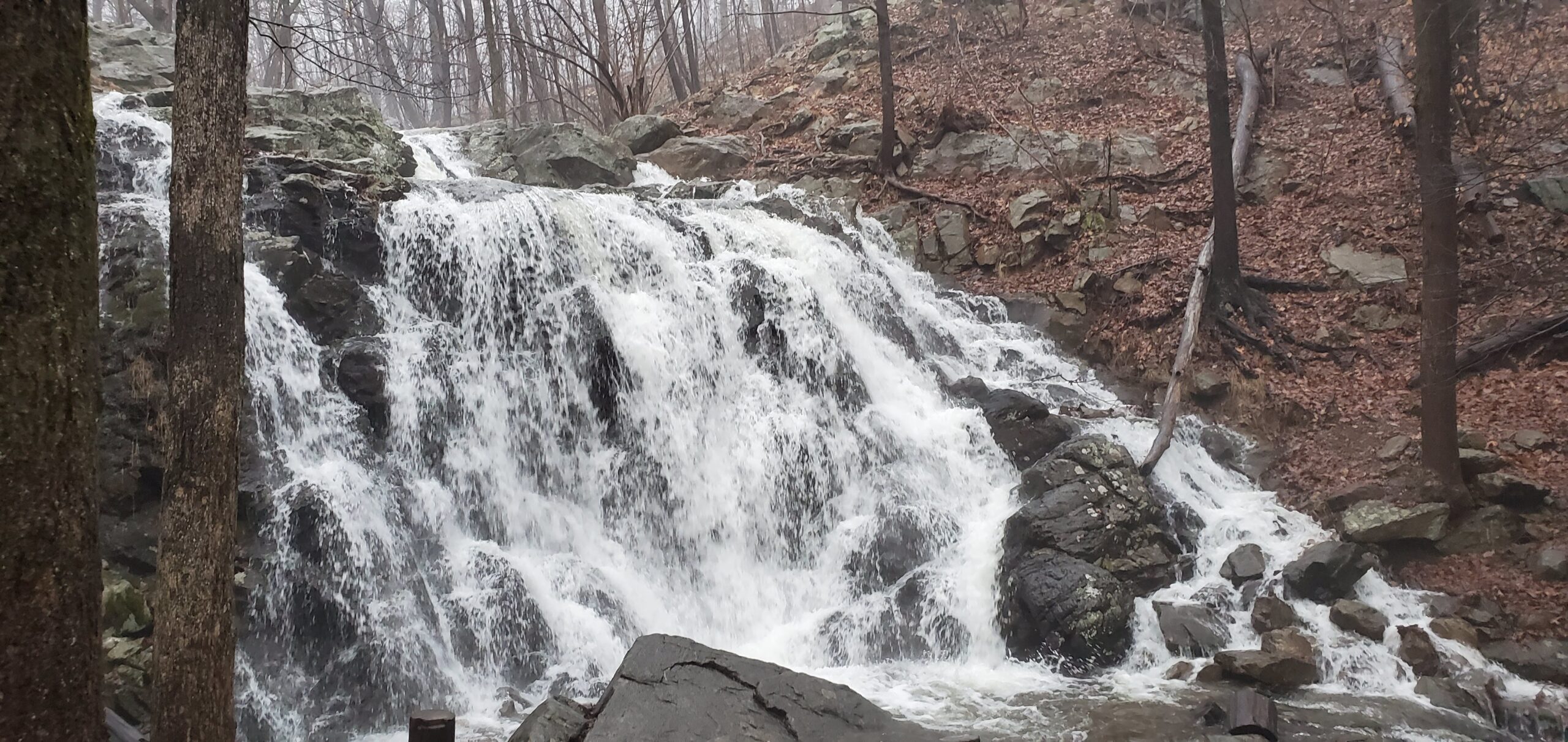
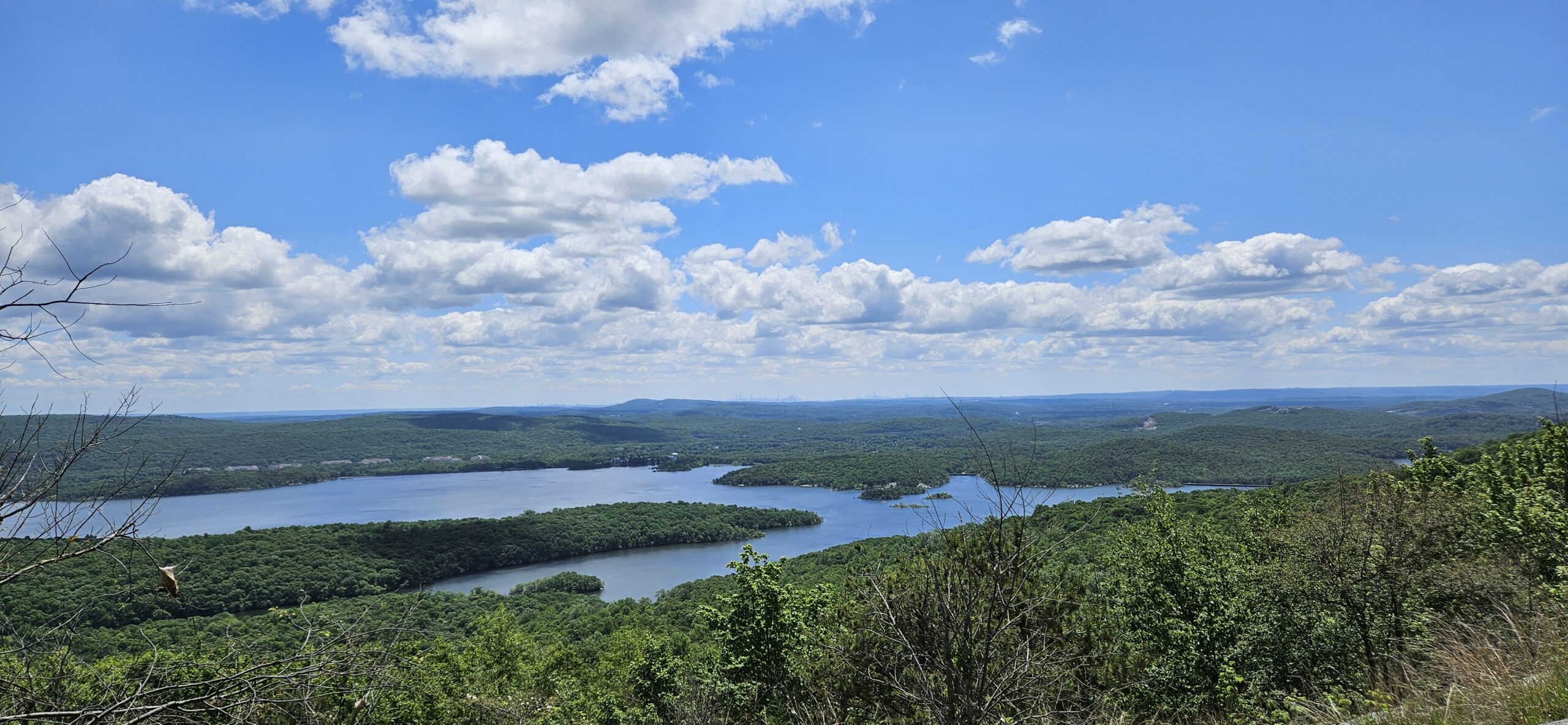
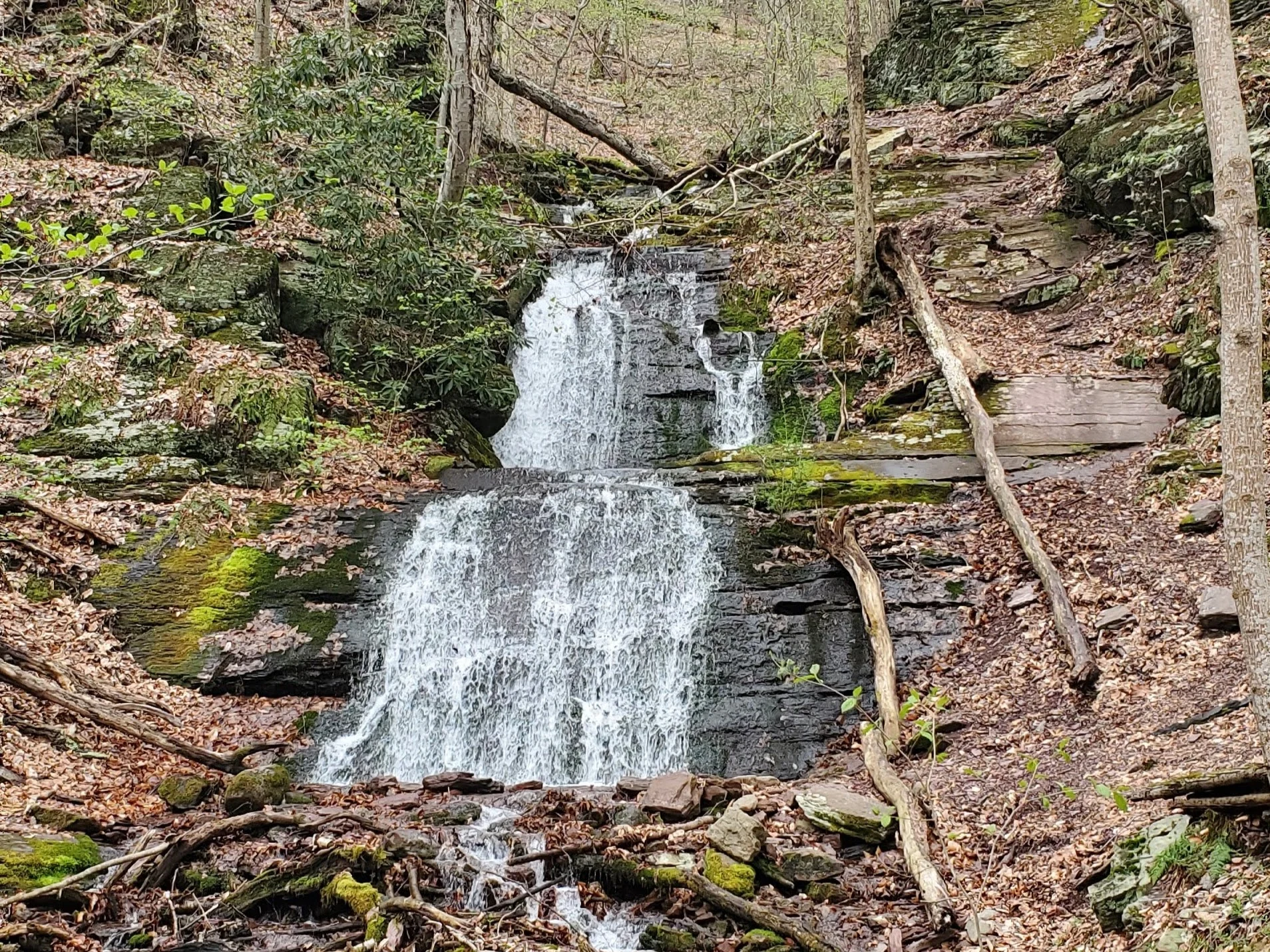
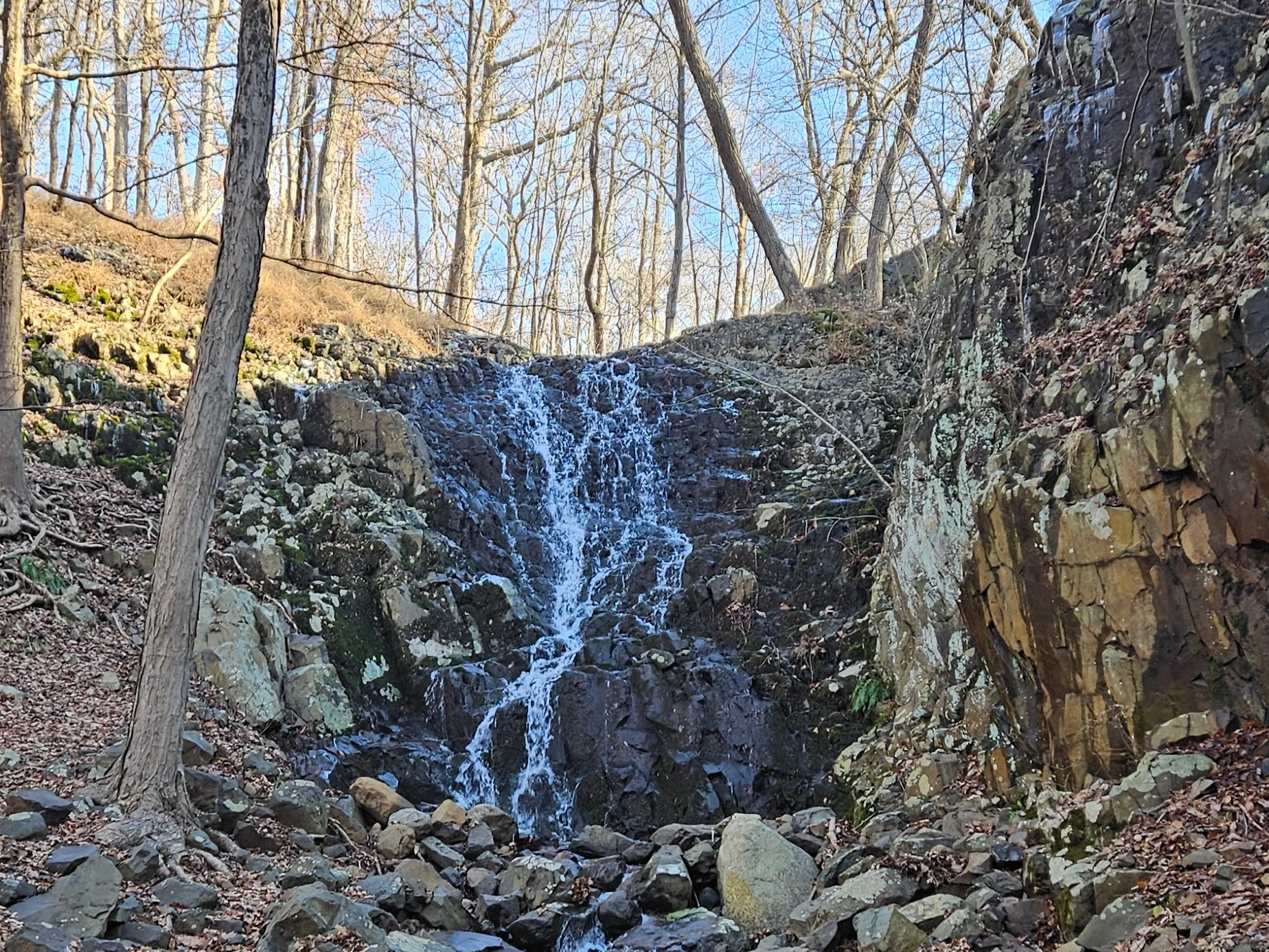
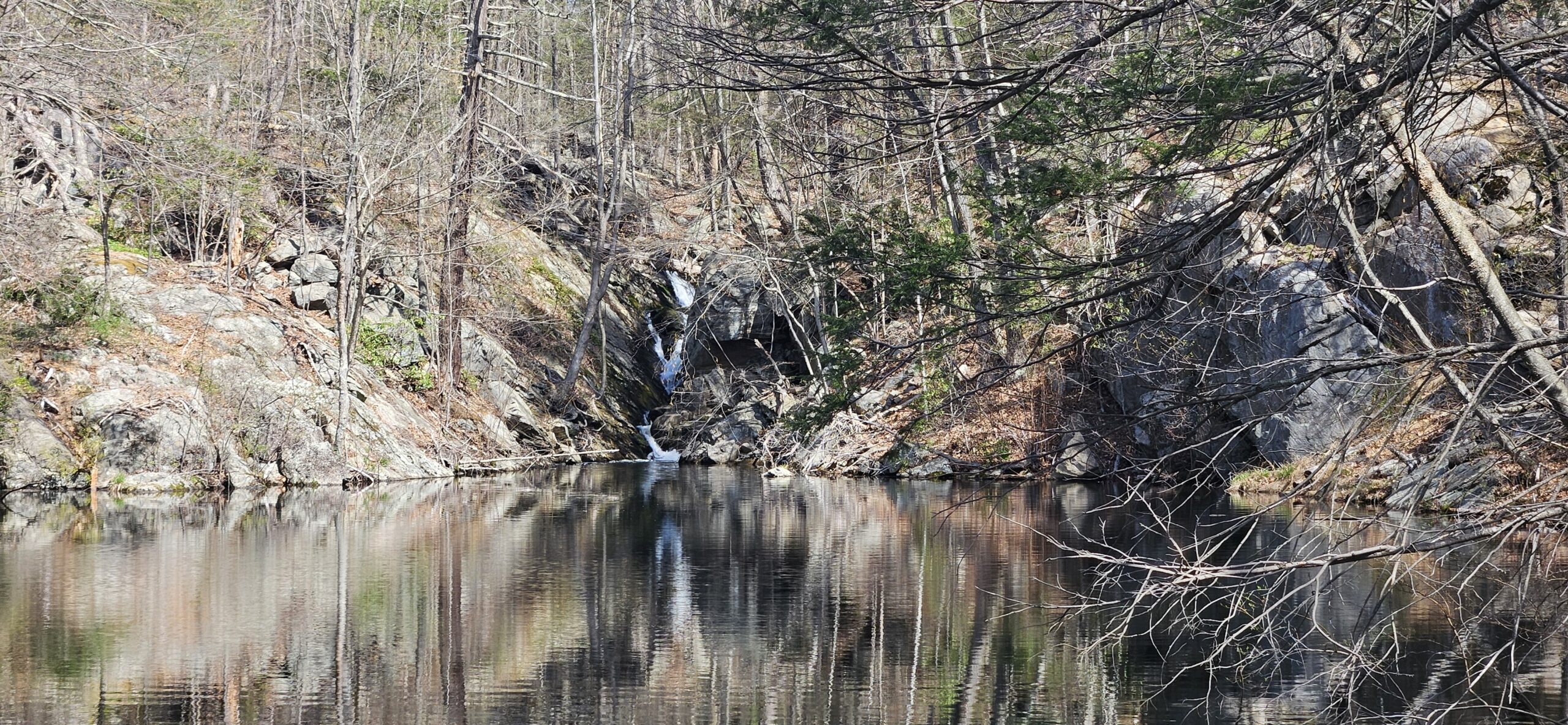
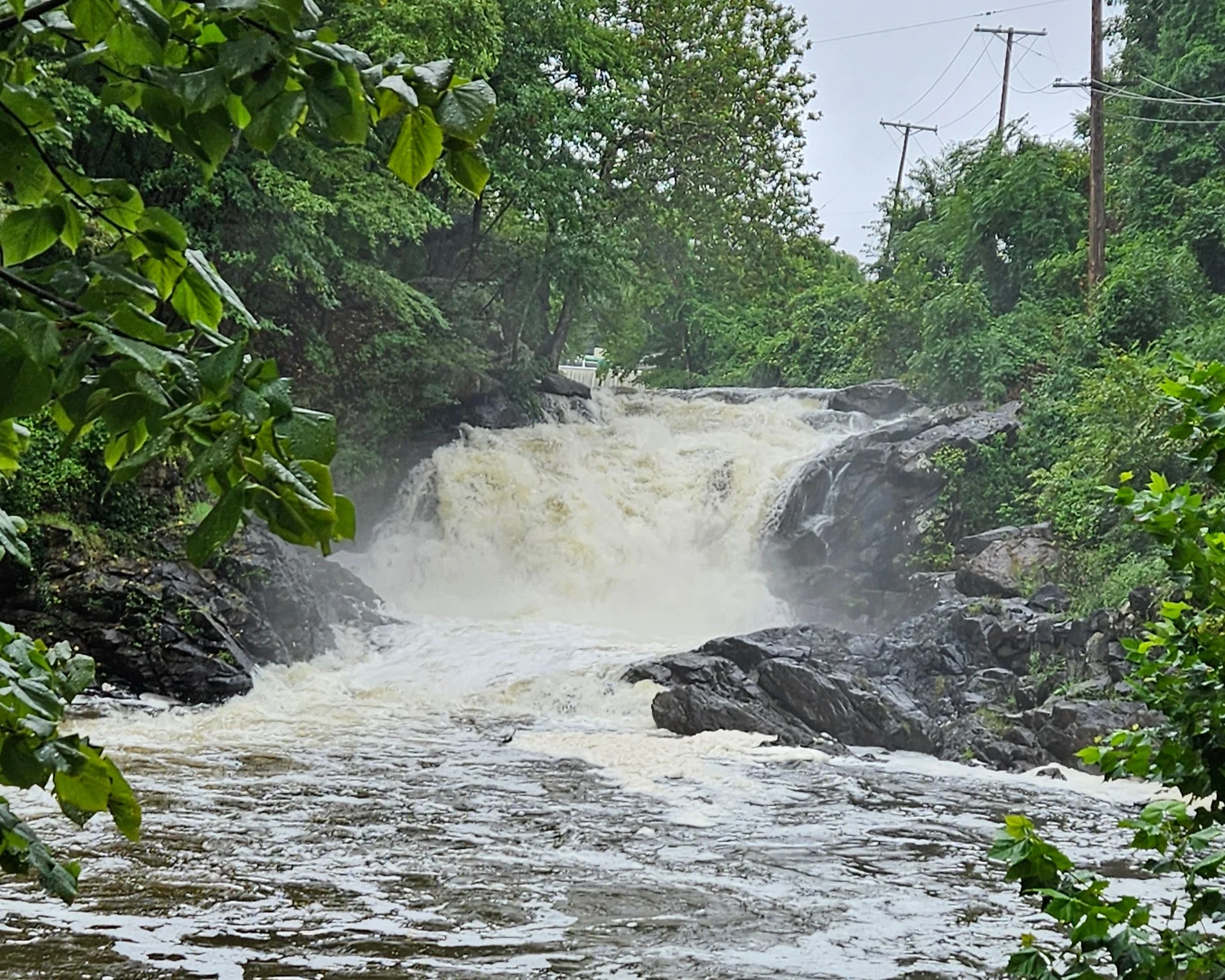
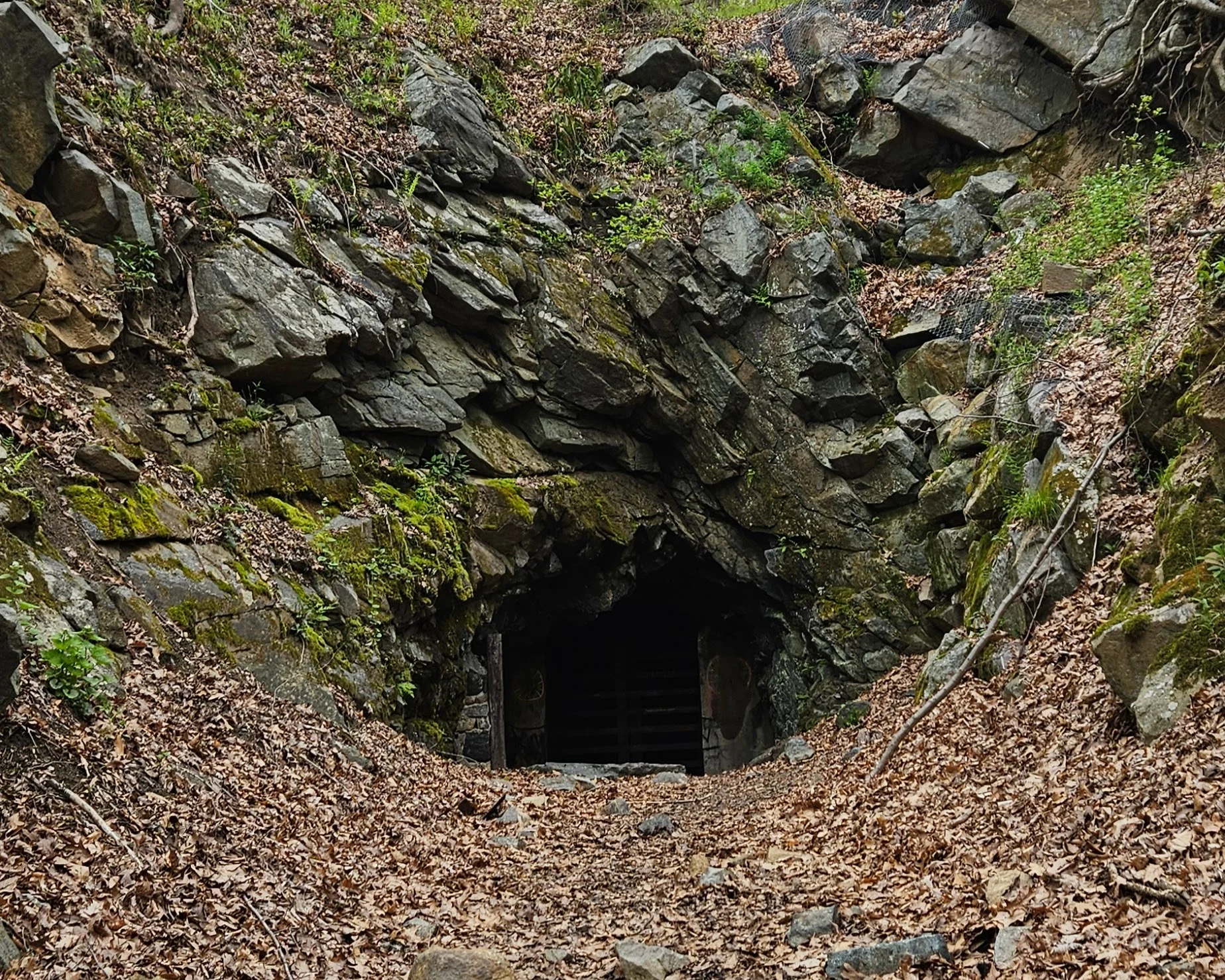
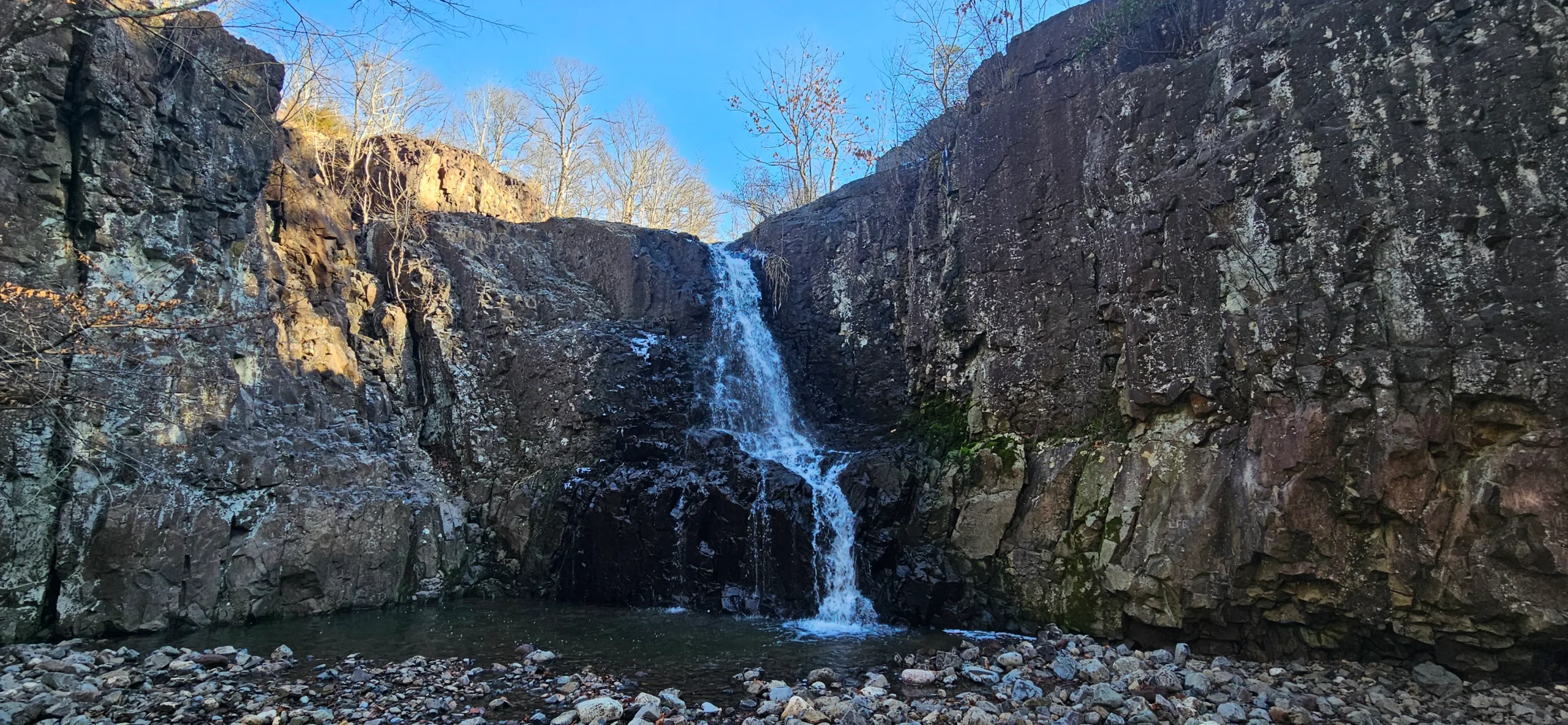
Leave a Reply